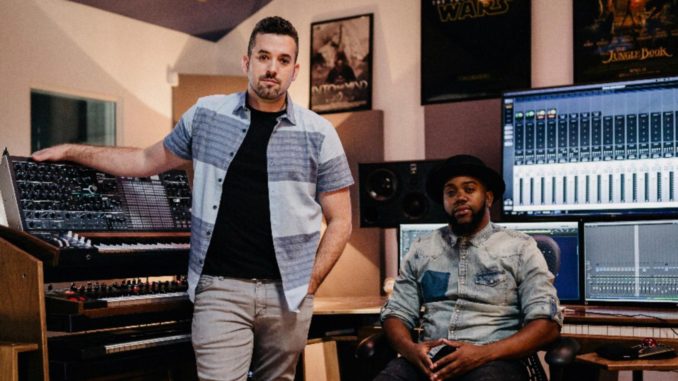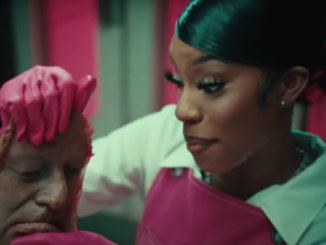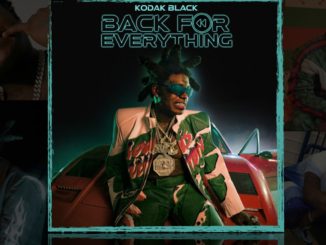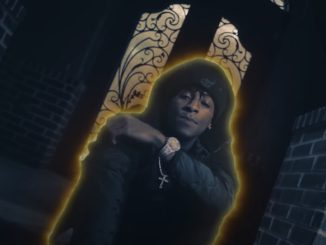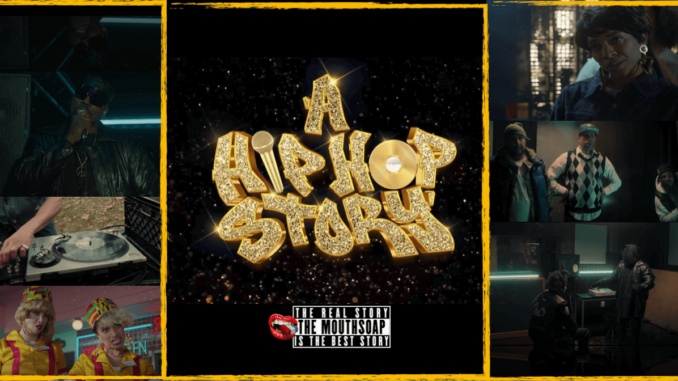
The Hollywood Stuff
From the minds of the incredibly talented Affion Crockett (School Dance, A Haunted House) and Damaine Radcliff (Rambo: Last Blood, Step Up) comes A Hip Hop Story, the coming-of-age tale of hip hop’s expansion from block parties to social media, centered around one of its founding fathers. Although the film presents a strong and serious opinion about the state of the music-centered culture, it’s far from the dramatic perspective presented through other films critical about hip hop, such as director Rick Famuyiwa’s 2002 film Brown Sugar.
Crockett, who penned the screenplay, made his point using the parody formula he’s become famous for — creative scenarios, impersonations, and jokes. His right-hand man for the film, Radcliff, directs the comedy feature, in addition to producing, editing, and acting in the film alongside Crockett, making for a powerful duo.
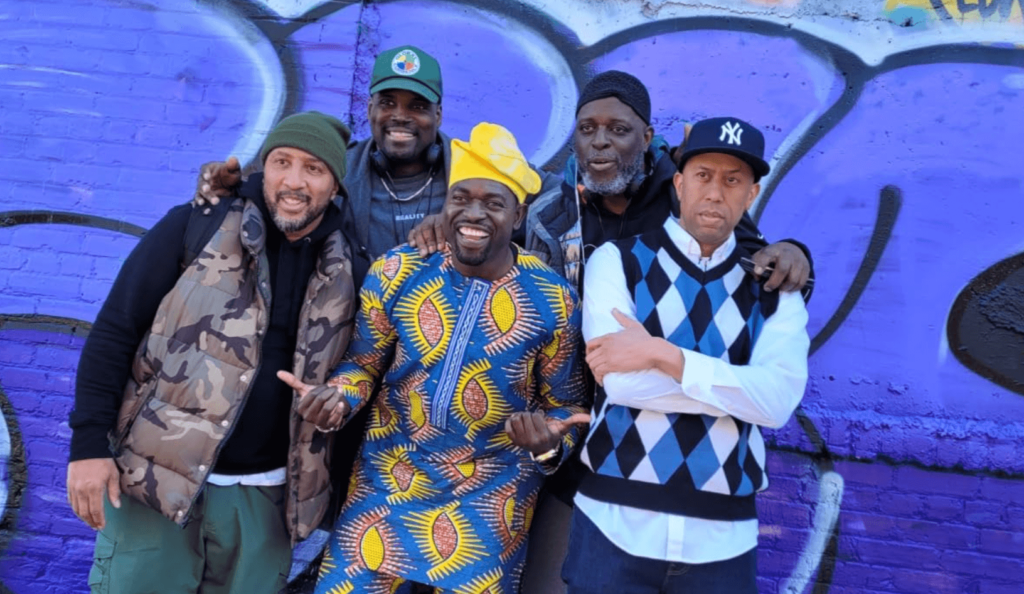
Keisha Richardson is credited with casting the bill of actors, starring John O. Nelson, Jevin Smith, Cedric The Entertainer, Lil Rel Howery, Wayne Brady, Damien Dante Wayans, Page Kennedy, Lil Mama, Ciera Foster, Savvy Amusing, Paris Scott Allen, Daisha Graf, and Lourdes Gonzalez.
Radcliff’s Raining Giants and Crockett’s Lejan Entertainment produced the film, while AMC+ oversaw theatrical distribution in the U.S. Serving as executive producers are Talitha M. Watkins, Charles E. Alston, and Matthew Isaac Calhoun, with Wolf Adler as co-executive producer.
Lasting Impression
(Spoiler Alert) The story of hip hop is told from the narration of Roscoe Simons, played by Crockett, who is very obviously modeled after the real-life hip hop icon and controversial figure Russell Simmons. Simons invites viewers on a journey that delves into his traumatizing childhood to his rise as co-founder of “Def Man Recordings.” When a comfortably wealthy Simons is propositioned to explore the deteriorating state of hip hop by a local rapper named J bum (Nelson), Simons makes it a mission to save hip hop by any means necessary.
The film does a worthy job of dressing its “preaching to the choir” angle with the welcomed distraction of impressive impersonations. Crockett’s wide range of talents rise to the occasion due to his spot-on impersonations of not only Russell Simmons, but also Will Smith, Ghostface Killah, Ludacris, Cornell West, Joe Budden, Chris Rock, and Jay-Z. It’s the slight head nods of Chris Rock during his stand-up comedy specials, or Budden’s wholesome “podcasting” laugh, or Cornell’s intellectual folding of the hands during an interview, that seems to make all the difference in Crockett’s award-worthy performance.
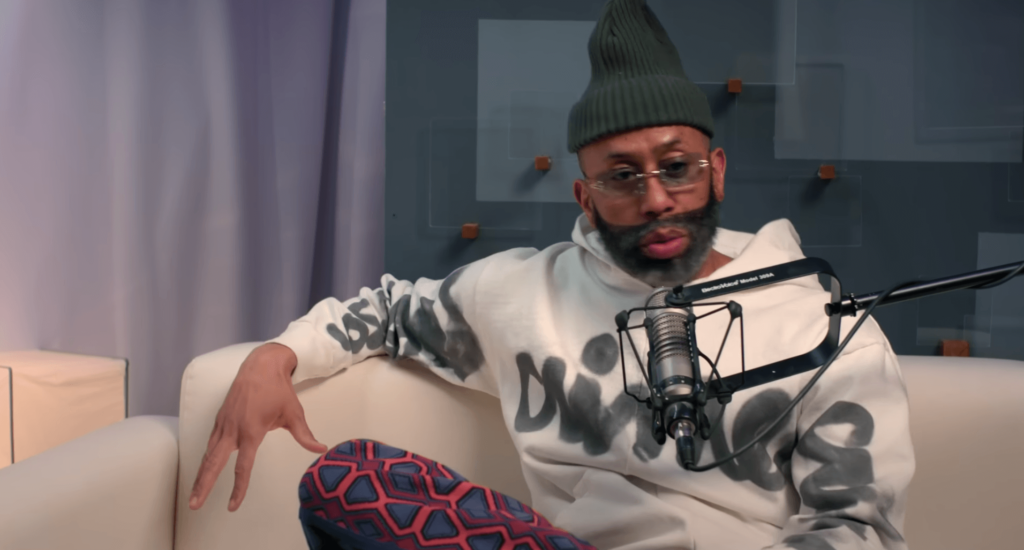
In fact, the impersonations are a significant part of what makes A Hip Hop Story a film deserving of being added to the classic hip hop film collection shelf (whether digital or DVD), a few slots down from Belly on the left and 8 Mile on the right, in between How High and House Party (the 2023 version). That’s not a knock, the film is indeed a goofy take of the events that make up hip hop history. As long as viewers understand that, they can enjoy A Hip Hop Story for what it is, a film honoring hip hop’s 50 years of existence from a lighthearted stance, yet with a heavy cautionary message — hip hop is on life support.
THROW IT BACK ARTICLE: Review: ‘House Party’ Reboot Is Not Comparable To The Original Film, But Comes With Its Own Delightful Shenanigans
That sentiment is driven home by numerous original rap songs strung throughout the film. To Crockett and Radcliff’s credit, the songs aren’t bad, some would squash today’s chart-toppers. One in particular, “Hip Hop’s 50th Year,” surprisingly not available on Apple Music, synchronizes and summates the entire 90-minute film in a cypher-style parody of Bad Boy Records’ remixed “Flava In Ya Ear” by the late Craig Mack. Quite unexpectedly, the song serves as a soul-stirring, nostalgic reminder of the many genius contributions to hip hop and how far the culture has come. It brought a tear to my eye.
Simultaneously, behind the opulence and grandeur lies a murky shadow of hip hop’s present state. For one, the film’s featured legends who are fortunate to be alive today have not persevered without being scathed by scandal. Many of their legacies have been tarnished by allegations of various abuses of power and affiliations with sadistic secret societies, others have succumbed to drug addiction and mental health challenges. The bitter pill makes it even more necessary to chase it all down with laughter… and that’s real, real sad.
Constructive Criticism
Just with any film, there are a few things that could have been better. Ventures into the world of hip hop, including its history and present-day, would probably exhaust more than 90 minutes, so it’s understandable that milestones and significant moments are briefly covered. The result, however, is an anemic story plot that egregiously leaves out the influence of southern rappers and the current female femcee evolution that has been claiming stake since the onset of the pandemic.
Ludacris is mistakenly marked as the representative of the south, not Scarface, T.I., Outkast, or Uncle Luke, while women rappers are quickly brushed passed through parodied cameos of Queen Latifah, MC Lyte, and Salt-N-Pepa — all done quite brilliantly, by the way. The film is careful not to point fingers at more recent female artists, such as Lil Kim, Trina, or Foxy Brown, for inspiring the hip hop culture we have to tolerate in the 21st century.
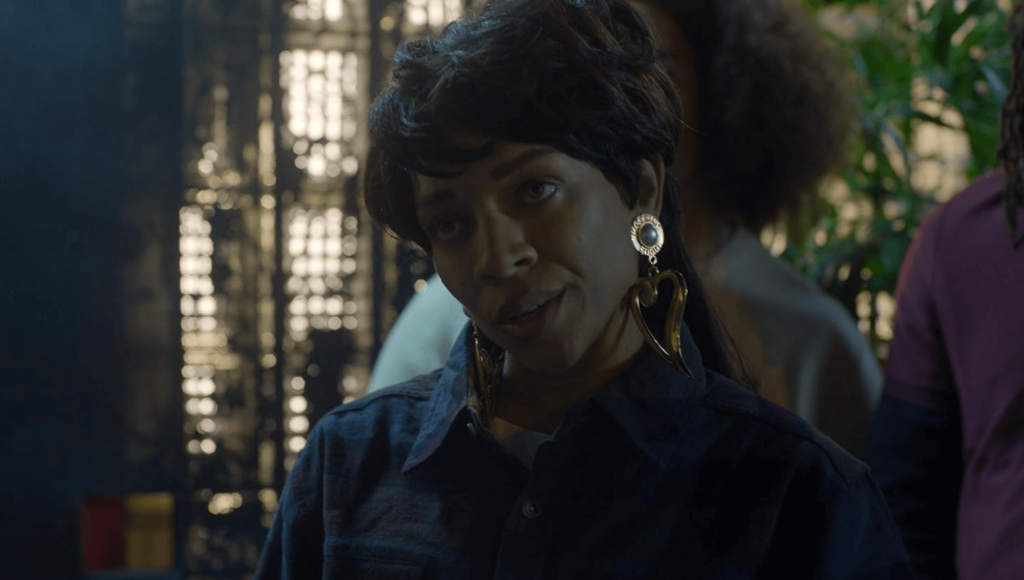
Gen Z’s modern-day expression of hip hop is summarized as rainbow hair-colored, culturally appropriating, face tattoo sporting, soft-skilled cornballs. The irony, considering how the film pokes fun at Russell Simmon’s yoga practices, Freeway’s stature and famous ad-lib, and Kanye’s zany ways.
The focus is primarily on the birthplace of hip hop, New York, and the male pioneers associated with Bad Boy and the now defunct Roc-A-Fella Records. Even the rap god Tupac Shakur barely was acknowledged, again making for a very regional and anemic telling of hip hop history. But, again, this is a comedy, not a documentary.
INTERVIEW: Affion Crockett Speaks On ‘A Hip Hop Story’
Speaking of, not all the comedy hits, and many jokes land flatly. One example of this occurs during the child version of Simon’s visit to a barbershop where Big Greg (Lil Rel Howery), Freddy (Wayne Brady), and Donny (Damien Dante Wayans) are playing the dozens, mainly targeting Big Greg. The scene is very reminiscent of Eddie Murphy and Arsenio Hall’s back and forth barbershop banter in Coming To America, without the gut-busting jokes — literally, there was silence in the theater. To be fair, the film balances out with other jokes that land with the aid of impeccable impersonations.
Even with these criticisms, they aren’t enough to override the total quality of the self-financed film, which is a true testament to the amount of work put in by Crockett and Radcliff.
Box Office Bomb Or Overlooked Gem
By the end of the film, I was pleased with the overall message and even left with a renewed appreciation for hip hop. What wasn’t so inspiring was the lack of people who showed up to watch the film. This film deserves the eyes of hip hop aficionados, curators, gatekeepers, and even the casual consumer. A very apparent labor of love, A Hip Hop Story is just the tip of the iceberg when it comes to how many ways we can tackle the degeneration of a beloved culture. But, these attempts to course correct need the support of the fans.
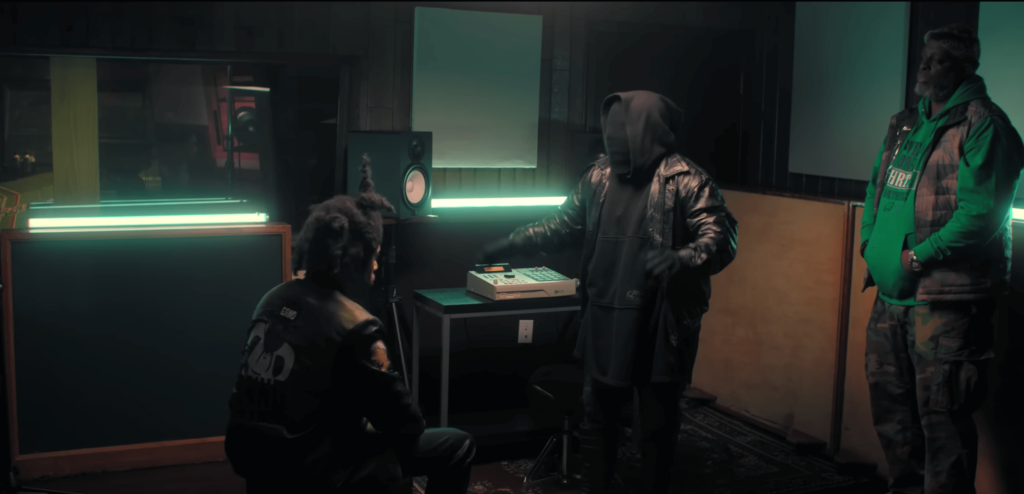
While the official box office grosses are unreleased, the film is not garnering the eyes of the masses simply because it’s not in enough theaters, inflation is a pain, people are tapping into streaming platforms for entertainment, and Hollywood is going through a midlife crisis as it holds on for dear life to its prehistoric ways in an age of innovative disruption. For those reasons alone, the box office results may bomb not at the fault of the film’s content or quality.
Would I recommend this film? Hell yeah. A Hip Hop Story is worth every penny and the 90-minutes it demands for those interested in hip hop, even if it offends the rappers it mocks. The directing and acting is more than stellar, the film serves its purpose, and the timing couldn’t be any better. Besides, hip hop fans around the world need a glimmer of hope that someone out there is thinking of a master plan (shoutout to Eric B. and Rakim)!
Watch The Official Trailer For A Hip Hop Story
